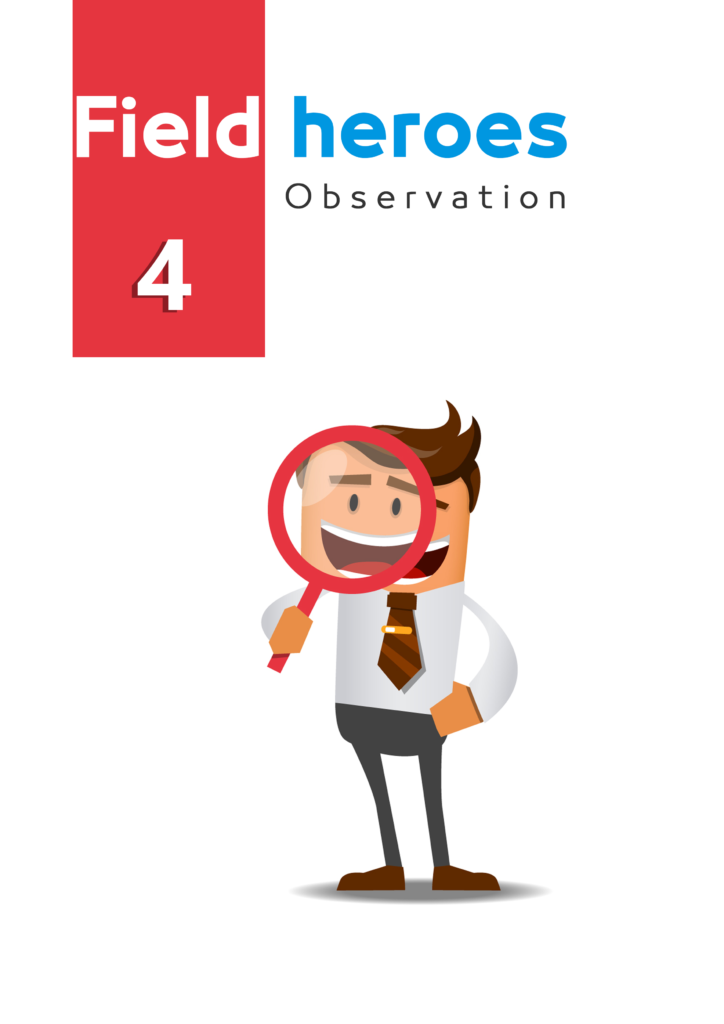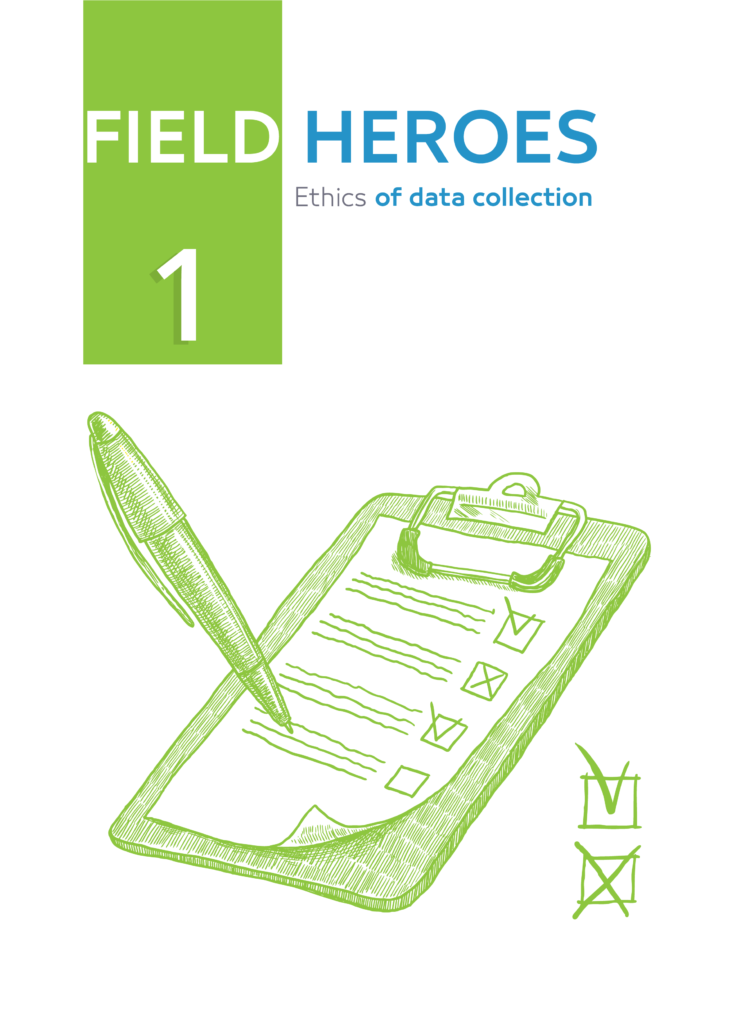Guides

A series of guides for the data collectors to increase their skills in data collection for various research sectors.
Titles of the guides:
1. Data Collection ethics.
2. Individual and KI interviews.
3. Focus Group Discussion.
4. Field visit/Observation.
the fourth and final guide of the Field Heroes series, which provides an explanation of the appropriate mechanisms and procedures for collecting data through observation, which is usually done through a field visit to the project site.
The observation is one of the most important tools of data collection because it helps us to obtain information about the expressed needs, which are more credible than the felt needs of the people, and it’s also the main tool in the methodology of Design Thinking developed by Ideo to help create innovative products.

A series of guides for the data collectors to increase their skills in data collection for various research sectors.
Titles of the guides:
1. Data Collection ethics.
2. Individual and KI interviews.
3. Focus Group Discussion.
4. Field visit/Observation.
the third guide from the Field Heroes series is focus group discussions FGDs, which aims to develop the skills of enumerators and researchers in this field.
focus group discussions FGDs considers one of the hardest tools in data collection in terms of facilitating the session and ensuring the orientation of the discussions in a way that helps to obtain the data intended for the session, in addition to the sensitive role of the documented session and the ability to discuss and record useful information.

Individual interviews
Individuals’ interviews are one of the most important tools in qualitative data collection and can be defined as an open talk between a field researcher and a person or group of people to discuss a set of questions related to a particular subject to obtain the data needed for the study, based on the knowledge of the participant or participants about the details of the subject under study.
Individuals’ interviews take between one hour to one hour and a half, and it can be done directly through a personal meeting between the field researcher and the participant, which is the most prevailing and appropriate form of conducting interviews, or by using modern means of communication such as Skype.
Advantages of individuals’ interviews:
Individuals’ interviews have many advantages, from which we can mention:
1-Individuals interviews are considered suitable for collecting data on important and sensitive issues such as those related to family matters or violence against children.
2-It is considered an opportunity for the field researcher to know the participant closely and help to obtain verbal answers and nonverbal indications that reinforce answers, such as expression changes on the participant’s face, his movements and emotional impressions, all that can be used in the data analyses process.
3-Individuals interviews help to motivate the participant to answer questions, ensure a correct interpretation of the questions and allow the participant to inquire about any ambiguity about the questions asked, and therefore, answers are more accurate and the percentage of errors is lower.
4- Individuals interviews are considered the best tools for data collection in illiterate communities, and in cases where the participant does not know how to read and write.
5-When doing individuals interviews, the field researcher is able to ask new questions related to the topic in question-based on the answers of the participant, and these questions help him get what he thinks is useful data.
6-Individuals’ interviews provide the field researcher with additional information about the subject in question and help him understand it well.
7-Individual interviews provide a good amount of data, where the percentage of replies and answers is higher than answers in written forms.
8-Individual interviews are considered the most appropriate way to collect data from important people, such as people with important positions in higher management.
9-Individual interviews allow the field researcher to return to the participant to ask more questions or inquire about some of the answers.
A series of guides for the data collectors to increase their skills in data collection for various research sectors.
Titles of the guides:
1. Data Collection ethics.
2. Individual and KI interviews.
3. Focus Group Discussion.
4. Field visit/Observation.
The second guide is the individual interviews, This guide includes six main themes:
The advantages of individual interviews, the disadvantages of individual interviews, the types of individual interviews, the preparation of individual interviews, conducting the individual interviews, the common mistakes that field researchers make when conducting interviews

Various institutions and organizations in their endeavors in seeking flawless implementation of their services conduct extensive studies before implementing their projects to have a better assessment for the needs of beneficiaries, and to identify ways in which these needs can be effectively and efficiently addressed.
Conducting these studies requires the existence of a field staff which conducts periodic visits to the targeted group to collect data and submit it to the analysts that turn this data into clear results that reflect the situation of the target group. It should be noted that the credibility of the concluded results depends on the accuracy of the data obtained in the field.
Proper collection of data and its success in achieving its objectives require the field researcher to be equipped with many skills, such as strong observation skills, the ability to use and employ the different senses, the ability to communicate with the participants to build upon the information they give, and having experience in the use of various data collection tools.
However, having expertise and skill alone is not sufficient for a field researcher to ensure the success of the data collection process and to acquire accurate information, which in turn leads to reaching objective results that reflect the condition of the target group. In order to reach that, field researcher must adhere to moral and ethical data collection principles which are defined as a set of standards and behavioral rules that govern and regulate the work of the field researcher while conducting data collection process.
In this guide we will mention the most important standards and ethics that the field researcher must adhere to
A series of guides for the data collectors to increase their skills in data collection for various research sectors.
Titles of the guides:
1. Data Collection ethics.
2. Individual and KI interviews.
3. Focus Group Discussion.
4. Field visit/Observation.
